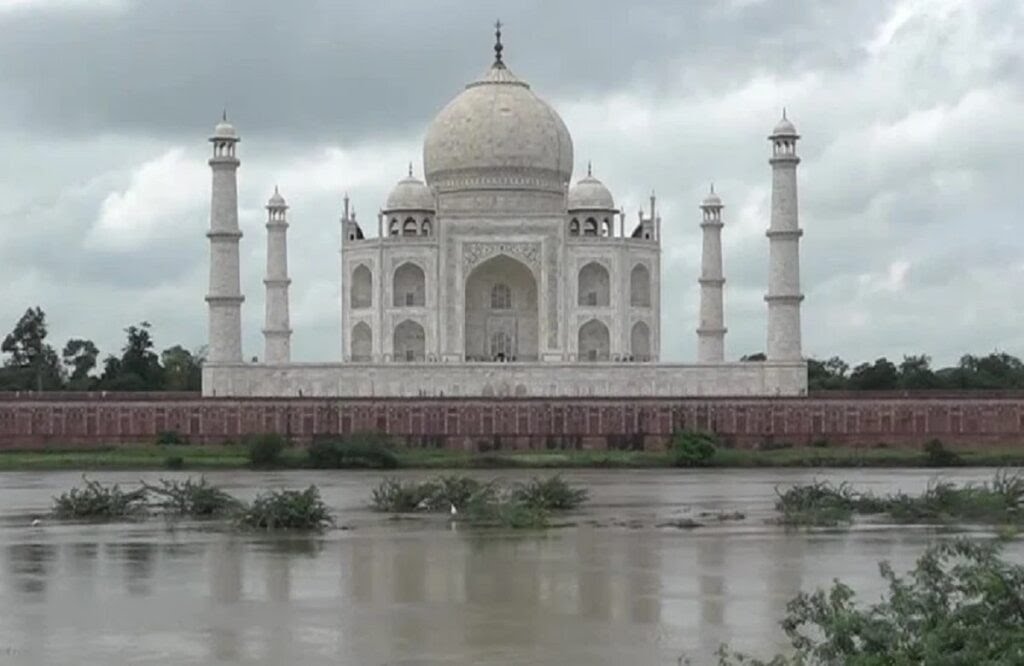After wreaking havoc in Delhi, the Yamuna River climbed to 495.8 feet in Agra, breaking the ‘low flood level’ line and approaching the renowned Taj Mahal’s walls on Monday, a sight not witnessed in 45 years.
According to images published on social media, the waters of the Yamuna are submerging a garden placed behind the towering monument. The last time the Yamuna came close to the world heritage site was during the 1978 floods. The water level had risen to 497.9 feet, surpassing the ‘low-flood level’ of 495 feet.
Prince Vajpayee, conservation assistant at the Archaeological Survey of India (ASI), ascribed the Taj’s endurance to its clever design, emphasising that the main tomb was built to endure floods. According to the Economic Times, “the monument was meticulously planned to ensure water could not enter the main structure, even during high floods.”
To avoid flooding, officials have built up barricades on the river ghats from Kailash Temple in Sikandra to the Dusshera Ghat near the Taj Mahal.
In the midst of the flood-like conditions in Agra, officials increased relief preparations. As the river began to rise, it flooded nearby roads and a crematorium in Tajganj, as well as touching the wall of the Itmad-ud-daulah mausoleum. According to PTI, the Yamuna Kinara Road leading to the Taj Mahal became saturated as a result of spillover from drains into the flooding river.
“The water level in Yamuna was 495.8 feet by 4 pm on Sunday. The low-flood level of this river in Agra is 495 feet. The medium flood level here is at 499 feet and high flood level at 508 feet,” Yashvardhan Srivastav, ADM (Finance and Revenue) told PTI.
“We are prepared to tackle a flood-like situation if it arises. Posts have been created and boatmen and divers are on alert. Locals in low-lying areas have been advised to remain alert,” he added.























